April 13, 2024
Mastering Financial Freedom: Your Comprehensive Guide to Achieving Wealth and Security
Are you ready to take control of your financial future and discover the key to a more flexible, secure, and fulfilling life? In this comprehensive guide, we will delve into the essential steps and strategies on how to achieve financial freedom. From mastering the basics to cultivating a wealth-building mindset, this article is your roadmap to attaining financial freedom and crafting the life you’ve always dreamed of.

Understanding the Fundamentals of Financial Freedom
Financial freedom is achieved when a person or household has enough wealth and passive income to cover essential living expenses without traditional employment.It provides the flexibility to make choices without being constrained by financial obligations.
Achieving financial freedom involves a multifaceted approach encompassing budgeting, saving, investing, and increasing earning potential. Understanding financial freedom fundamentals helps individuals create a clear roadmap to achieve independence and reach their goals.
The Key to Financial Freedom
One of the essential foundations for achieving financial freedom is developing a solid budgeting and savings plan. Track your income and expenses, identify areas to cut back, and allocate a portion of your earnings towards your financial goals.
Creating a Detailed Budget
Crafting a detailed budget is the first step in your journey towards financial freedom. By categorizing expenses and tracking spending, you can identify opportunities to reduce unnecessary expenditure and gain better control over your finances.
Here are some tips for creating an effective budget:
- Track income: Compile a list of all your sources of income, including your primary job, side hustles, interest, and any other revenue streams.
- Categorize expenses: Divide your expenses into categories such as housing, transportation, utilities, food, entertainment, and debt payments.
- Monitor spending: Use budgeting apps, spreadsheets, or a simple notebook to record your daily expenses. This will help you identify areas where you can cut back.
- Set spending limits: Allocate a specific amount for each expense category and strive to stay within those limits.
- Regularly review and adjust: Review your budget periodically and make adjustments as needed to accommodate changes in your financial situation.
Reducing Debt and Building Savings
Once you understand your financial situation, focus on reducing debt and increasing savings.
Strategies for reducing debt:
- Prioritize high-interest debt: Focus on paying off debts with the highest interest rates, like credit cards, personal loans, or payday loans.
- Negotiate with creditors: Reach out to negotiate lower interest rates or more favorable repayment terms.
- Consolidate debt: Consider combining debts into a single loan with a lower interest rate to simplify payments and reduce overall interest.
Building an emergency fund and increasing savings:
- Establish an emergency fund: Save at least 3-6 months’ worth of living expenses in an easily accessible account to cover unexpected costs.
- Automate savings: Set up automatic transfers from your checking to savings account for consistent contributions.
- Increase savings rate: Gradually allocate a higher percentage of your income to savings to maximize your savings rate over time.
Implementing these strategies can significantly improve your financial situation and lay the groundwork for achieving financial freedom.
Increasing Your Earning Potential
While budgeting and saving are crucial, increasing your earning potential is essential for achieving financial freedom and accelerating progress towards your goals.
Exploring Side Hustles and Passive Income Streams
Exploring side hustles and passive income streams can accelerate debt repayment, savings, and investments, boosting earning potential.
Examples of lucrative side hustles include:
- Freelance work (e.g., writing, web design, consulting)
- Driving for a rideshare service
- Selling products or services online
- Renting out a spare room or property
Passive income streams may include:
- Dividend-paying stocks
- Rental income from real estate investments
- Royalties from creative work (e.g., blog posts, e-books, online courses)
- Affiliate marketing
Diversifying income reduces reliance on one paycheck and builds a stronger financial base.
Advancing Your Career
In addition to side hustles and passive income, advancing your career can significantly increase your earning potential. This may involve:
- Education and Certifications – Enhancing your skills and qualifications can make you more valuable to your employer and open the door to higher-paying positions.
- Salary Negotiation – Research the market rate for your role and use this information to negotiate a more competitive compensation package with your employer.
- Promotions and Job Changes – Look for opportunities to take on more responsibility, manage a team, or transition to a higher-paying position within your organization or at a different company.
By consistently working to increase your income, you can generate more resources to accelerate your journey towards financial freedom.
Investing for Long-Term Financial Freedom
Investing is vital for long-term financial freedom. Strategic resource allocation in diverse investments can leverage compounding for long-term wealth growth.
Understanding Different Investment Options
There are several investment options to consider, each with its own risk-reward profile and unique characteristics. Some common investment vehicles include:
- Stocks: Investing in individual stocks or diversified stock funds, such as index funds or mutual funds.
- Bonds: Investing in debt instruments issued by governments, municipalities, or corporations.
- Real estate: Investing in rental properties, Real Estate Investment Trusts (REITs), or real estate crowdfunding platforms.
- Alternative investments: Investing in assets like cryptocurrencies, precious metals, or private equity.
It’s important to research and understand the potential risks and rewards associated with each investment type before allocating your funds.
Building a Diversified Investment Portfolio
One of the key principles of successful investing is diversification. By spreading investments across different asset classes, sectors, and regions, you can reduce overall risk and potentially enhance long-term returns.
Here are some tips for building a diversified investment portfolio:
- Allocate based on risk tolerance: Determine your risk appetite and allocate investments with a mix of higher and lower-risk assets.
- Consider index funds: Invest in low-cost, broad-market index funds to minimize individual stock risk.
- Regular rebalancing: Periodically review and rebalance your portfolio to maintain your desired asset allocation and risk profile.
By consistently investing and diversifying your portfolio, you can harness compound growth to build long-term wealth, supporting your journey to financial freedom.
Developing a Wealth-Building Mindset
Achieving financial freedom requires more than just practical financial strategies; in addition, it also involves cultivating the right mindset and habits.Developing a wealth-building mindset can help overcome financial fears, limiting beliefs, and stay motivated on the journey to financial independence.
Fostering a Positive Money Mindset
One of the key aspects of a wealth-building mindset is maintaining a positive relationship with money. This means:
- Shift your mindset from scarcity to abundance: Recognize that there are abundant opportunities to grow your wealth, rather than focusing on perceived limitations.
- Embrace a learning mindset: Continuously seek out financial education and be open to new ideas and strategies that can help you reach your goals.
- Practice gratitude and celebrate progress: Acknowledge and appreciate your financial accomplishments, no matter how small, to stay motivated.
Developing Wealth-Building Habits
In addition to a positive mindset, consistent, disciplined habits are crucial for building wealth over the long term. Some essential wealth-building habits include:
- Budget and track expenses: Regularly reviewing your budget and spending patterns to identify areas for improvement.
- Automate savings and investments: Setting up automatic transfers to ensure consistent contributions to your financial goals.
- Continuous self-education: Reading books, listening to financial podcasts, and attending workshops to expand your financial knowledge.
- Review and adjust your plan: Regularly reviewing your progress and making adjustments to your financial strategies as needed.
By cultivating a wealth-building mindset and developing disciplined habits, you can create a solid foundation for achieving and sustaining financial freedom.
Managing Unexpected Challenges
While the journey towards financial freedom can be rewarding, it’s important to be prepared for unexpected challenges that may arise along the way.By anticipating and planning for potential obstacles, you enhance financial resilience and maintain progress towards your goals.
Preparing for Financial Emergencies
One of the key aspects of managing unexpected challenges is building a robust emergency fund. As mentioned earlier, your emergency fund should ideally cover 3-6 months’ worth of living expenses, providing a financial cushion to help you navigate unforeseen events, such as job loss, medical emergencies, or home repairs.
Navigating Life Events and Setbacks
Life events such as job changes, divorce, or unexpected health issues can significantly impact your financial situation. It’s essential to have a plan in place to address these potential challenges and minimize their long-term effects on your financial freedom journey.
Strategies for navigating life events and setbacks include:
- Revisit your budget and adjusting as needed: Review your budget and make necessary changes to accommodate new financial realities.
- Seek professional financial advice: Consider consulting with a financial advisor or planner to help you navigate complex situations and make informed decisions.
- Maintain a positive mindset and perseverance: Remain focused on your long-term goals and don’t let temporary setbacks derail your progress.
By preparing for unexpected challenges, you can enhance financial resilience and work towards sustained financial freedom.
How to Sustain Financial Freedom
Reaching financial freedom is a significant achievement; however, maintaining it demands continual effort and vigilance. In this final section, we’ll explore the practical steps to achieve and sustain your financial freedom.
Practical Steps to Reach Your Financial Freedom Goals
To achieve your financial freedom goals, it’s essential to establish a clear roadmap and take consistent, incremental actions. Some key steps include:
- Refine Financial Vision and Goals – Regularly review and update your long-term financial objectives to ensure they align with your evolving needs and aspirations.
- Track Progress – Monitor your progress towards financial freedom goals by regularly reviewing your budget, savings, and investment performance.
- Celebrate Milestones and Adjust – Acknowledge and celebrate your achievements along the way, and be willing to make necessary adjustments to your strategies as your circumstances change.
Maintaining a Balanced Lifestyle
While the pursuit of financial freedom can be all-consuming, it’s essential to maintain a balanced lifestyle to avoid burnout and ensure the sustainability of your efforts. This includes:
- Self-care: Make time for activities that nourish your physical, mental, and emotional well-being, such as exercise, hobbies, and quality time with loved ones.
- Avoid lifestyle inflation: As your income and net worth grow, resist the temptation to significantly increase your spending and maintain a modest, intentional lifestyle.
- Give back: Consider allocating a portion of your resources towards charitable causes or community initiatives that align with your values.
By achieving a balanced approach to financial freedom, you can enjoy the true benefits of independence and live a fulfilling life.
Conclusion
To achieve financial freedom, it’s essential to understand personal finance, adopt disciplined habits, and cultivate a positive wealth-building mindset. By following these strategies, you can take purposeful steps towards financial independence, ultimately leading to greater flexibility, security, and fulfillment.
Remember, the journey to financial freedom is not a sprint, but a marathon. Embrace the process, celebrate your progress, and remain committed to your long-term goals. With determination and the right approach, you can achieve financial freedom and live an empowered life.
Are you seeking a community of individuals who share your drive for financial literacy and wealth creation? Don’t journey alone. Click here to become part of our dynamic community, where we learn, grow, and prosper together in our financial endeavors.



